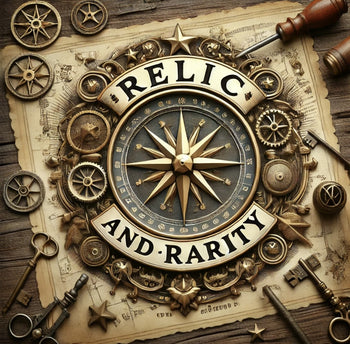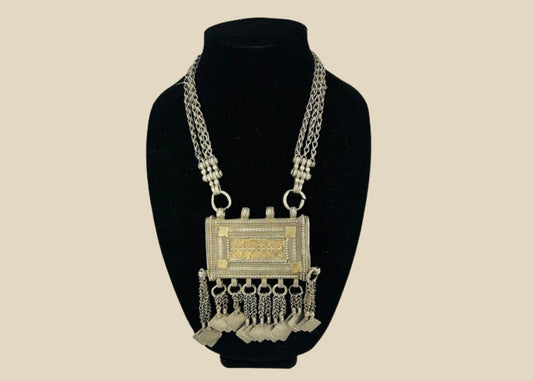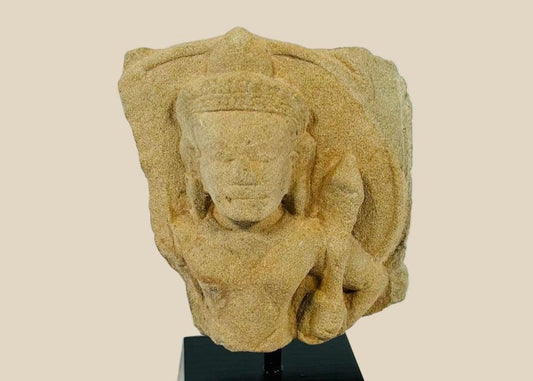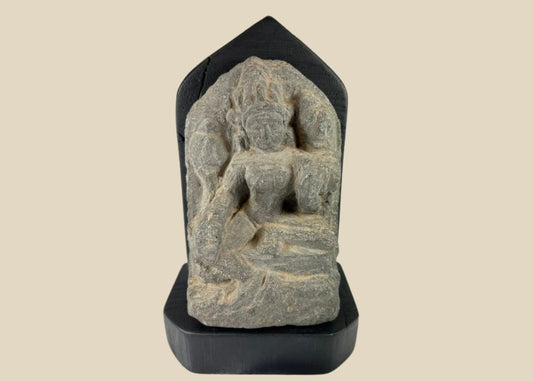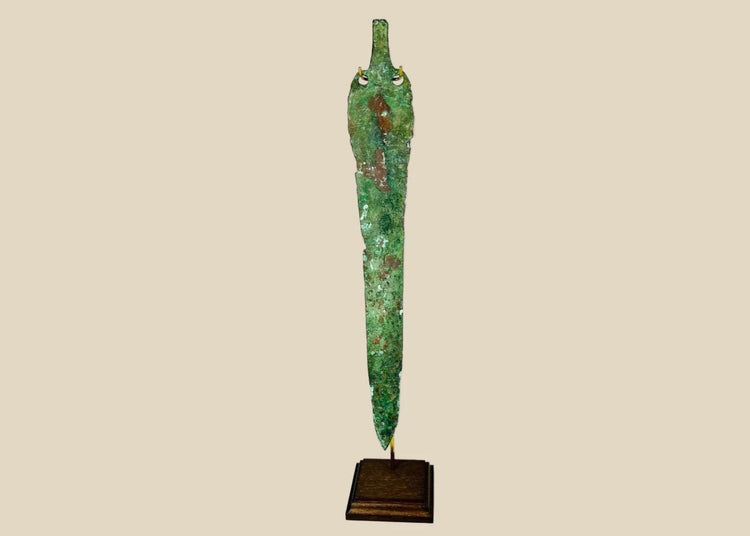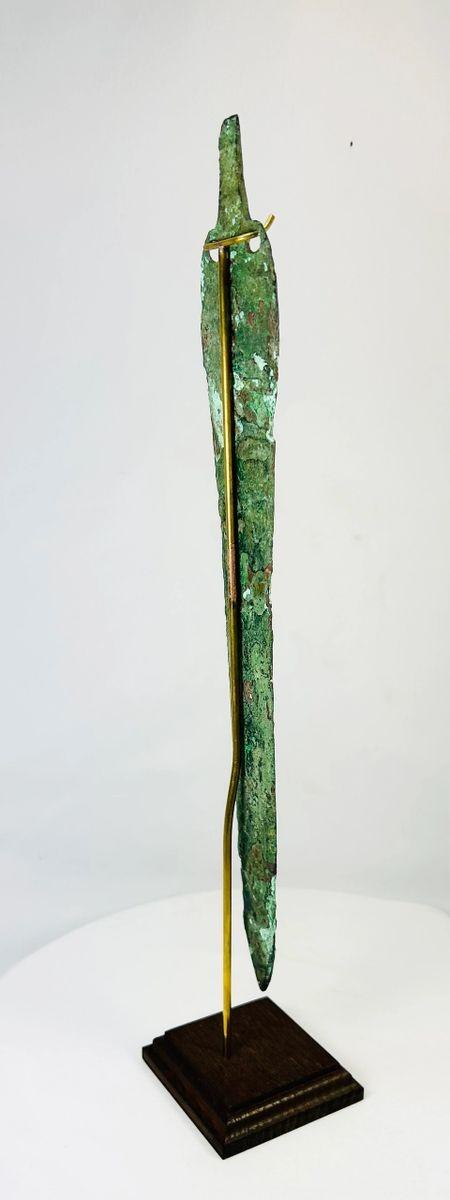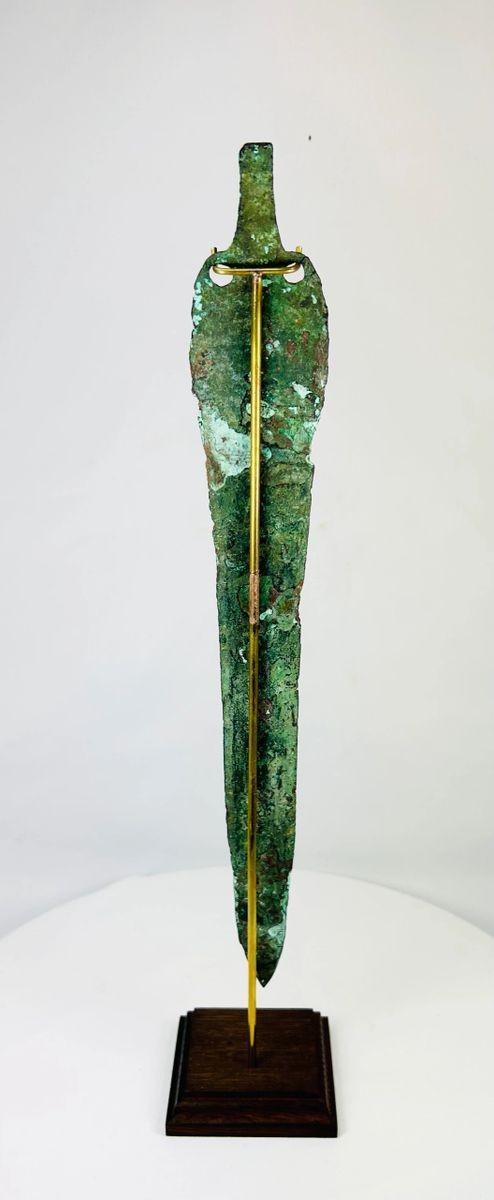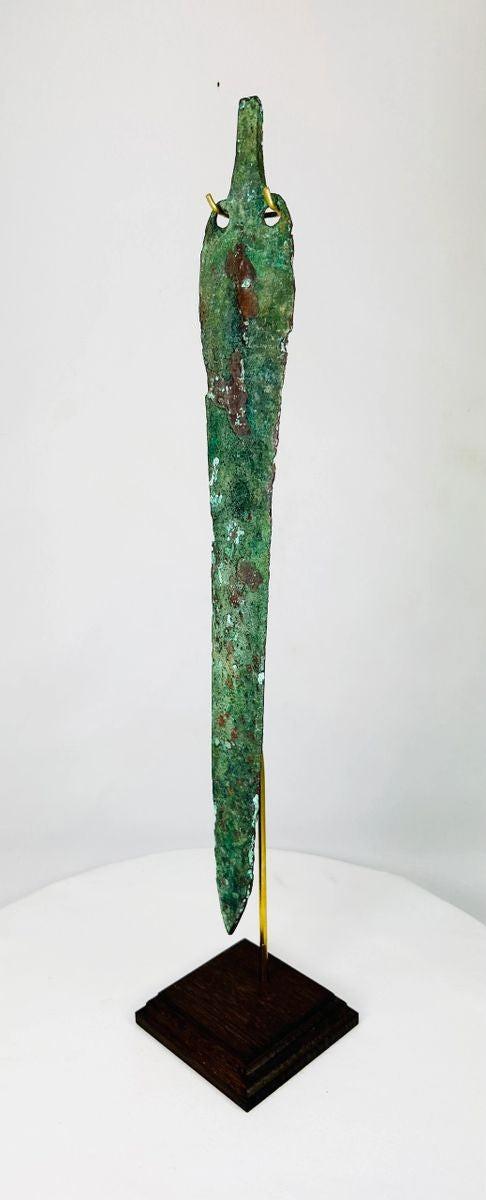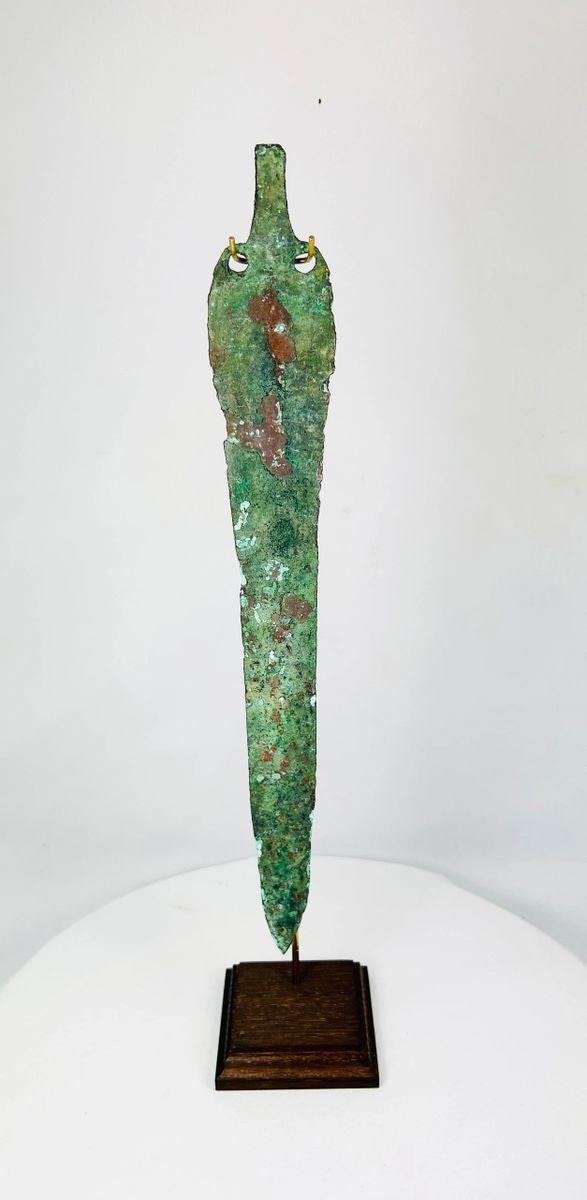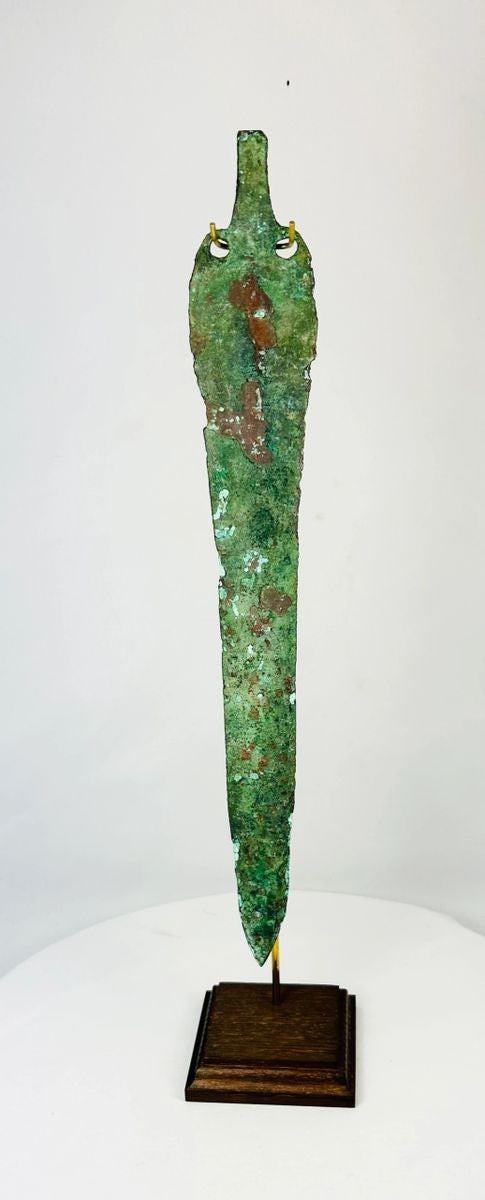Ancient Caspian | Bronze Blade | Circa 2nd to 1st Millennium BCE
Description
More
Less
Historical Context & Origin
Region: Caspian Region, likely Northwestern Persia
Material: Bronze
Period: Bronze Age, circa 2000–1000 BCE (approximately 3,000–4,000 years old)
Description
This ancient bronze blade is a remarkable example of early metallurgy from the Caspian region, dating back 3,000–4,000 years. Featuring a tapered, elongated form with a subtle curve, it reflects both the functional needs and artistic design of Bronze Age societies. Two drilled perforations near the hilt suggest it was once attached to a handle or perhaps mounted for ceremonial purposes, adding a layer of symbolic importance to its practical function.
Features
- Tapered elongated shape with subtle curve for functional use
- Two drilled perforations near the hilt for hafting or ritual mounting
- Forged from bronze, demonstrating early metallurgical expertise
- Developed green patina with scattered reddish-brown corrosion, testifying to great age
- Mounted on a custom wooden stand with brass rod for display
Cultural Significance
Bronze blades of this type were not only utilitarian weapons or tools but also carried symbolic value in ancient societies. They could be used in daily life or in ritual contexts, reflecting both the technological achievements and the spiritual or cultural beliefs of early civilizations in the Caspian region. Their craftsmanship illustrates the development of metallurgy and the emergence of objects that served dual roles in both practical and ceremonial spheres.
Condition
The blade exhibits a rich green patina from centuries of oxidation, with patches of reddish-brown surface corrosion. These age-related features enhance its authenticity and historical character. Despite the weathering, the form remains intact, preserving its aesthetic and cultural significance.
Dimensions (approximate)
Length: 14.5 in
Age
Circa 2000–1000 BCE (3,000–4,000 years old)
Discover More
Explore our Historical Warfare & Exploration Collection— authentic weapons, armor, and relics that shaped the course of human history.
Description
Historical Context & Origin
Region: Caspian Region, likely Northwestern Persia
Material: Bronze
Period: Bronze Age, circa 2000–1000 BCE (approximately 3,000–4,000 years old)
Description
This ancient bronze blade is a remarkable example of early metallurgy from the Caspian region, dating back 3,000–4,000 years. Featuring a tapered, elongated form with a subtle curve, it reflects both the functional needs and artistic design of Bronze Age societies. Two drilled perforations near the hilt suggest it was once attached to a handle or perhaps mounted for ceremonial purposes, adding a layer of symbolic importance to its practical function.
Features
- Tapered elongated shape with subtle curve for functional use
- Two drilled perforations near the hilt for hafting or ritual mounting
- Forged from bronze, demonstrating early metallurgical expertise
- Developed green patina with scattered reddish-brown corrosion, testifying to great age
- Mounted on a custom wooden stand with brass rod for display
Cultural Significance
Bronze blades of this type were not only utilitarian weapons or tools but also carried symbolic value in ancient societies. They could be used in daily life or in ritual contexts, reflecting both the technological achievements and the spiritual or cultural beliefs of early civilizations in the Caspian region. Their craftsmanship illustrates the development of metallurgy and the emergence of objects that served dual roles in both practical and ceremonial spheres.
Condition
The blade exhibits a rich green patina from centuries of oxidation, with patches of reddish-brown surface corrosion. These age-related features enhance its authenticity and historical character. Despite the weathering, the form remains intact, preserving its aesthetic and cultural significance.
Dimensions (approximate)
Length: 14.5 in
Age
Circa 2000–1000 BCE (3,000–4,000 years old)
Discover More
Explore our Historical Warfare & Exploration Collection— authentic weapons, armor, and relics that shaped the course of human history.
You May Also Like
